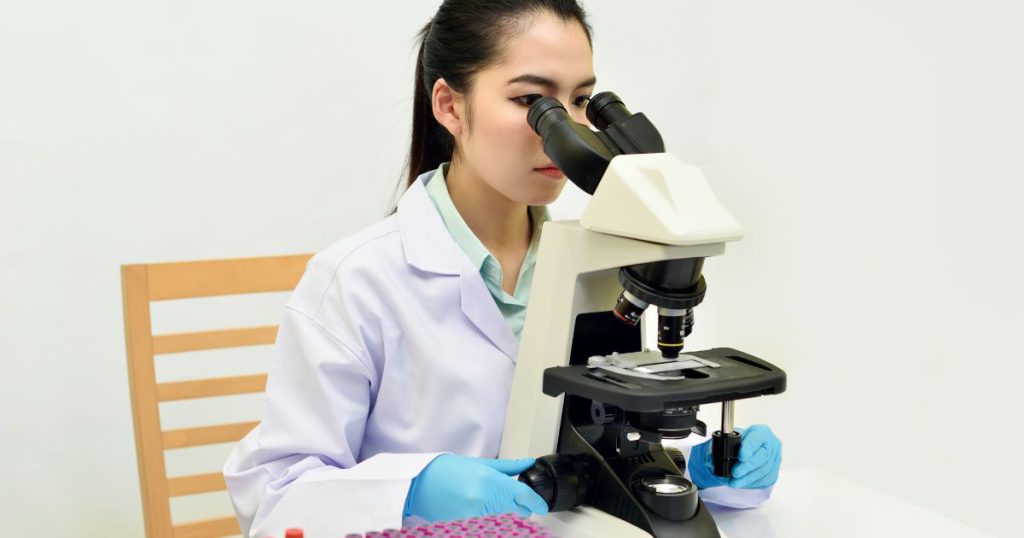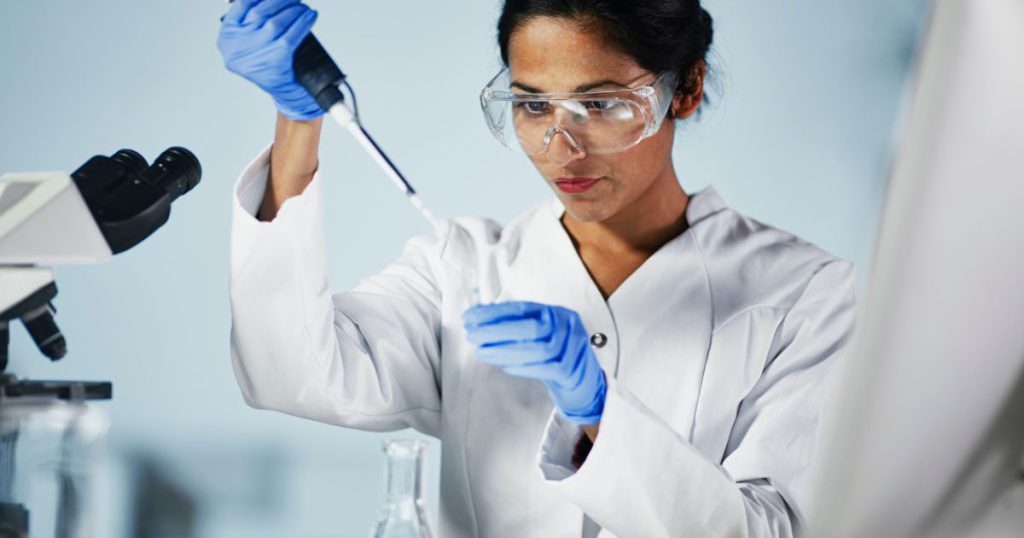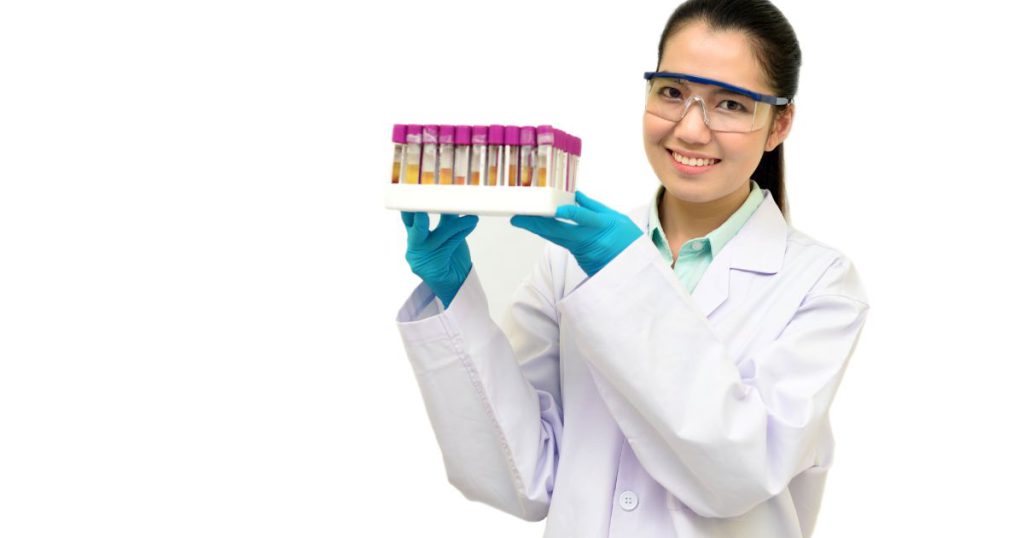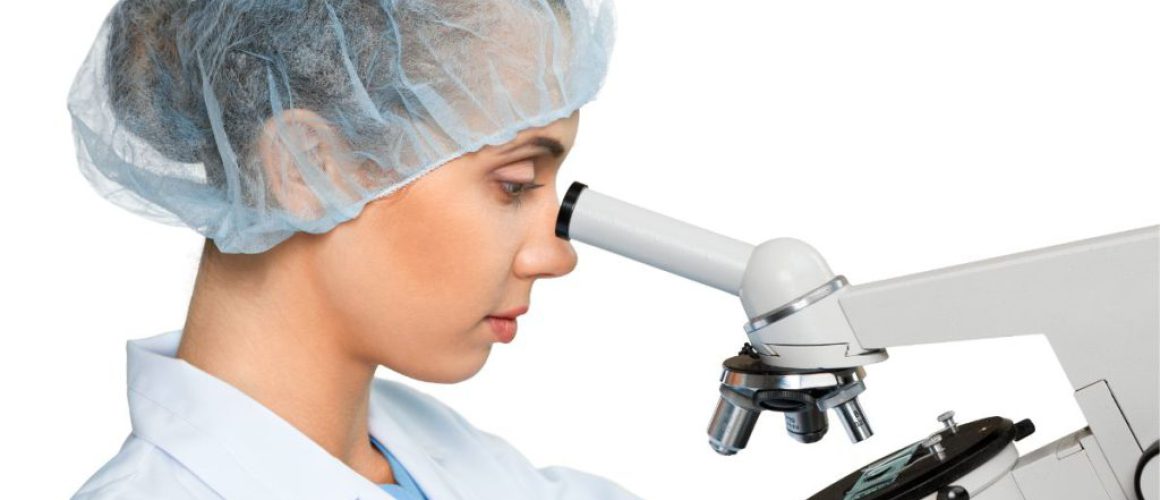Career Prospects: Clinical laboratory technologist/medical technologist
Table of Contents
Clinical Laboratory Technologist/Medical Technologist
| Job Role | Education Required | Key Responsibilities |
|---|---|---|
| Clinical Laboratory Technologist | Bachelor’s degree in Medical Technology or a related field | Perform complex tests, supervise technicians, specialize in a specific area of the lab |
| Medical Technologist | Bachelor’s degree in Medical Technology or a related field | Perform complex tests, supervise technicians, have a more in-depth understanding of the physiological origins of disease |
Ever wondered what it’s like to be a Medical Technologist, the unsung hero in the healthcare world? Buckle up, as we dive into the fascinating realm of Medical Technology, unraveling the mysteries of this vital profession.
Introduction
What is it like to be at the forefront of medical innovation, working as a Clinical Laboratory Technologist or Medical Technologist? These professionals are the unsung heroes of the healthcare industry, working behind the scenes to provide critical data that informs patient diagnosis and treatment. They are the bridge between the laboratory and the patient, ensuring that medical decisions are based on accurate and reliable test results. In this article, we will delve into the world of Clinical Laboratory Technologists and Medical Technologists, exploring their roles, responsibilities, and the impact they have on patient care.
The work of a Medical Technologist might be behind the scenes, but it’s at the forefront of patient care. Every test we perform, every result we deliver, contributes to a patient’s diagnosis and treatment.
The field of medical technology is vast and ever-evolving, with new advancements and techniques emerging regularly. This makes it an exciting and dynamic career choice for those with a passion for science and a desire to contribute to patient care. Whether you’re a student considering a career in this field or a seasoned professional looking for insights, this article will provide a comprehensive overview of what it means to be a Clinical Laboratory Technologist or Medical Technologist.
As a third-year student at Mahidol University’s Faculty of Medical Technology, I’ve had the privilege of gaining firsthand experience in this field. I’ve seen the dedication, precision, and expertise required to excel in this role, and I’m excited to share my insights with you. So, let’s embark on this journey together, exploring the world of Clinical Laboratory Technologists and Medical Technologists.

What is the difference between a medical technologist and a clinical laboratory technologist?
Let’s first demystify what a Clinical Laboratory Technologist or Medical Technologist does on a daily basis. While these terms are often used interchangeably, there are subtle differences between them. Both professionals work in a laboratory setting, analyzing body fluids and tissues, conducting tests, and reporting findings to physicians. However, the scope of their work can vary depending on their training and the specific needs of their workplace.
A Medical Technologist, also known as a Medical Laboratory Scientist, typically has a broader scope of practice. They may perform more complex tests, supervise technicians, and have a more in-depth understanding of the physiological origins of disease and the mechanisms of testing. On the other hand, a Clinical Laboratory Technologist might specialize in a specific area of the lab, such as microbiology, hematology, or immunology.
Regardless of the title, these professionals play a crucial role in healthcare. They provide the data that doctors rely on to diagnose and treat patients. From identifying bacterial infections to detecting cancerous cells, the work of Clinical Laboratory Technologists and Medical Technologists is integral to patient care.
Different Specializations in Medical Technology
| Specialization | Description |
|---|---|
| Hematology | Study of blood and blood-forming tissues |
| Microbiology | Study of microorganisms, such as bacteria and viruses |
| Immunology | Study of the immune system |
| Clinical Biochemistry | Study of biochemical mechanisms in the body related to disease |
The Journey to Becoming a Medical Technologist
Steps to Becoming a Medical Technologist
- Earn a bachelor’s degree in Medical Technology or a related field
- Complete a clinical internship
- Pass a certification exam
- Gain experience in a clinical laboratory
- Pursue continuing education and specialization
Becoming a Medical Technologist doesn’t happen overnight; it’s a journey filled with learning, growth, and a lot of hard work. The first step is obtaining a bachelor’s degree in medical technology or a related field. This program provides a solid foundation in the sciences, including biology, chemistry, and microbiology, as well as specialized courses in areas such as hematology, immunology, and clinical biochemistry.
After completing their degree, aspiring Medical Technologists often undergo a period of clinical training. This hands-on experience allows them to apply their theoretical knowledge in a practical setting, under the supervision of experienced professionals. It’s a chance to learn the ropes, develop technical skills, and gain a deeper understanding of the role.
Certification is another important step in the journey to becoming a Medical Technologist. While not always required, it’s highly recommended and often preferred by employers. Certification demonstrates a certain level of competency and commitment to the profession, and it can open up more job opportunities.
Finally, becoming a successful Medical Technologist requires a commitment to lifelong learning. The field of medical technology is constantly evolving, with new tests, techniques, and technologies emerging all the time. Staying up-to-date with these advancements is crucial for providing the best possible patient care.
Career Paths for Medical Technologists
| Career Path | Description |
|---|---|
| Specialization | Focusing on a specific area of the lab |
| Management | Overseeing a team of technologists or managing a lab |
| Education | Teaching the next generation of professionals |
| Research | Contributing to the development of new tests and treatments |

Day in the Life of a Medical Technologist
Key Skills for a Medical Technologist
- Attention to detail
- Manual dexterity
- Technical skills
- Analytical skills
- Communication skills
Let’s take a look at a typical day in the life of a Medical Technologist, where no two days are the same. Their day usually starts early in the morning, when they arrive at the lab and begin preparing for the day’s work. This might involve setting up equipment, calibrating instruments, or preparing reagents for the tests they’ll be running.
Once the lab is set up, the real work begins. Depending on the day, they might be analyzing blood samples for signs of infection, testing tissue samples for cancer, or identifying bacteria in a culture. Each test requires precision and attention to detail, as the results can have a significant impact on a patient’s diagnosis and treatment.
Throughout the day, they’re also responsible for maintaining the lab’s quality control standards. This involves ensuring that their instruments are functioning properly, that their tests are accurate, and that they’re following all necessary safety protocols. It’s a crucial part of the job, as it ensures the reliability of their results.
At the end of the day, they take some time to clean up the lab and prepare for the next day. This might involve restocking supplies, cleaning instruments, or updating patient records. It’s a chance to reflect on the day’s work and prepare for the challenges of the next day.

The Impact of Medical Technologists and Clinical Laboratory Scientists
Medical Technologists and Clinical Laboratory
Scientists play a crucial role in healthcare that often goes unnoticed. They work behind the scenes, conducting the tests that inform patient care. Their work is integral to the diagnosis and treatment of a wide range of conditions, from bacterial infections to cancer.
Despite their important role, these professionals often don’t receive the recognition they deserve. They’re not the ones interacting with patients or making the final diagnosis. But without their expertise and dedication, doctors wouldn’t have the information they need to treat their patients.
As a student in this field, I’ve seen firsthand the impact that Medical Technologists and Clinical Laboratory Scientists have on patient care. Their work is challenging and often goes unnoticed, but it’s also incredibly rewarding. They’re the unsung heroes of the healthcare industry, and their contributions are invaluable.
Career Opportunities and Growth
Challenges Faced by Medical Technologists
- Keeping up with rapid advancements in technology
- Working under pressure to deliver accurate results quickly
- Ensuring the safety and confidentiality of patient information
- Maintaining certification through continuing education
The field of Medical Technology is vast and ever-evolving, offering a plethora of opportunities for career growth and specialization. As a Medical Technologist or Clinical Laboratory Scientist, you’re not limited to one path – there are many directions your career can take.
One of the most common career paths is specialization. This involves focusing on a specific area of the lab, such as microbiology, hematology, or immunology. Specialization allows you to develop a deep understanding of a particular area and can open up opportunities for advancement.
Another career path is management. With experience, Medical Technologists and Clinical Laboratory Scientists can move into supervisory or managerial roles. This might involve overseeing a team of technologists, managing a lab, or even running a hospital’s laboratory services.
There are also opportunities for education and research. Many Medical Technologists and Clinical Laboratory Scientists go on to teach, sharing their knowledge and expertise with the next generation of professionals. Others may choose to pursue research, contributing to the development of new tests and treatments.
No matter which path you choose, the field of Medical Technology offers a wealth of opportunities for growth and advancement. It’s a career that offers both personal fulfillment and professional development.
Personal Experiences and Insights
As a third-year student at Mahidol University’s Faculty of Medical Technology, I’ve had the opportunity to learn from experienced professionals, gain hands-on experience in the lab, and develop a deep understanding of the role of a Medical Technologist.
One of the most valuable experiences I’ve had was my internship at the BC Summer Internship Program. This gave me the opportunity to work in a real lab, conducting tests and analyzing samples. It was a challenging but rewarding experience, and it solidified my passion for this field.
One of the most important lessons I’ve learned is the importance of precision and accuracy. In this field, there’s no room for error – the results of our tests can have a significant impact on a patient’s care. It’s a responsibility that I take very seriously, and it’s one of the reasons I’m so committed to my education and training.
Another insight I’ve gained is the importance of teamwork. In the lab, we’re all working towards the same goal – to provide accurate, reliable test results that inform patient care. It’s a collaborative environment, and I’ve learned so much from my colleagues and mentors.
As a Medical Technologist, you’re not just working in a lab. You’re part of a healthcare team, contributing your expertise to help patients get the care they need.

Conclusion
Becoming a Clinical Laboratory Technologist or Medical Technologist is a rewarding career path that combines the thrill of medical innovation with the satisfaction of making a difference. It’s a field that offers a wealth of opportunities for growth and specialization, and it’s one that’s constantly evolving, keeping pace with advancements in medical technology.
Whether you’re just starting your journey or you’re a seasoned professional looking for insights, this article will provide a comprehensive overview of what it means to be a Clinical Laboratory Technologist or Medical Technologist. It’s a career that’s both challenging and rewarding, and it’s one that I’m proud to be a part of.
Encouragement and Final Thoughts
If you’re considering a career as a Clinical Laboratory Technologist or Medical Technologist, I hope my experiences and insights have given you a clearer picture of what to expect. It’s a career that requires dedication, precision, and a commitment to lifelong learning. But it’s also a career that offers the opportunity to make a real difference in people’s lives.
Remember, the journey to becoming a Medical Technologist or Clinical Laboratory Scientist is just that – a journey. It’s a path filled with learning, growth, and plenty of hard work. But it’s also a path filled with rewards, from the satisfaction of helping patients to the thrill of being at the forefront of medical innovation.
So, if you’re ready to embark on this journey, I encourage you to take that first step. The world of Medical Technology is waiting for you, and I can’t wait to see where your journey takes you.
This post is part of my Career Prospects category. Also check out my other post: Medical Technology Career Prospects: A Student’s Perspective and Clinical laboratory technician/medical laboratory technician
Disclaimer: This article is intended for informational purposes only. It is not meant to be a substitute for professional medical advice, diagnosis, or treatment. Always seek the advice of your physician or other qualified health provider with any questions you may have regarding a medical condition. Never disregard professional medical advice or delay in seeking it because of something you have read on this website.
Frequently Asked Questions
What is the difference between a medical technologist and a clinical laboratory technologist?
While these terms are often used interchangeably, there can be subtle differences. A Medical Technologist, also known as a Medical Laboratory Scientist, typically has a broader scope of practice, performing more complex tests, supervising technicians, and having a more in-depth understanding of the physiological origins of disease and the mechanisms of testing. A Clinical Laboratory Technologist might specialize in a specific area of the lab, such as microbiology, hematology, or immunology.
Is science laboratory technology the same as medical laboratory?
Not exactly. Science Laboratory Technology is a broader field that encompasses various types of laboratory work, including chemistry, physics, and biology labs. Medical Laboratory Technology is a specialized field within laboratory technology that focuses specifically on the analysis of patient samples for the diagnosis and treatment of diseases.
What is a clinical medical laboratory?
A clinical medical laboratory is a facility where tests are carried out on clinical specimens to obtain information about the health of a patient. This information is used for the diagnosis, treatment, and prevention of disease. It’s where Medical Technologists and Clinical Laboratory Scientists typically work.
What is the difference between a technician and a technologist?
The main difference between a technician and a technologist is the level of education and responsibility. Technologists usually have a bachelor’s degree and perform more complex tests and procedures, while technicians typically have an associate’s degree or certificate and perform routine tests under the supervision of a technologist.
What is the difference between lab technician and research technician?
A lab technician typically works in a clinical setting, performing routine tests that aid in the diagnosis and treatment of diseases. A research technician, on the other hand, works in a research setting, assisting scientists in their research by conducting experiments and analyzing results.
What is the difference between microbiology and medical laboratory technology?
Microbiology is a branch of biology that studies microorganisms, including bacteria, viruses, fungi, and parasites. Medical Laboratory Technology is a broader field that includes not only microbiology but also other areas such as hematology, immunology, and clinical biochemistry.
Read More
Faculty of Medical Technology – Mahidol University
Sean Schepers is a third-year Medical Technology student at Mahidol University with a passion for all things health and medicine. His journey into the world of medicine has led him to explore various fields. Sean's blog posts offer a unique perspective, combining his academic insights with personal experiences. When he's not studying or blogging, Sean enjoys keeping up with politics and planning his future career in medicine.
In addition to his studies, Sean serves as the chairman of the Rights, Liberties, and Welfare Committee, a role that reflects his commitment to advocacy and social justice. Beyond his academic pursuits, Sean offers tutoring services in English and Biology, further demonstrating his dedication to education and mentorship. His journey is one of continuous discovery, and he invites others to join him as he explores the dynamic and transformative world of medical technology.


